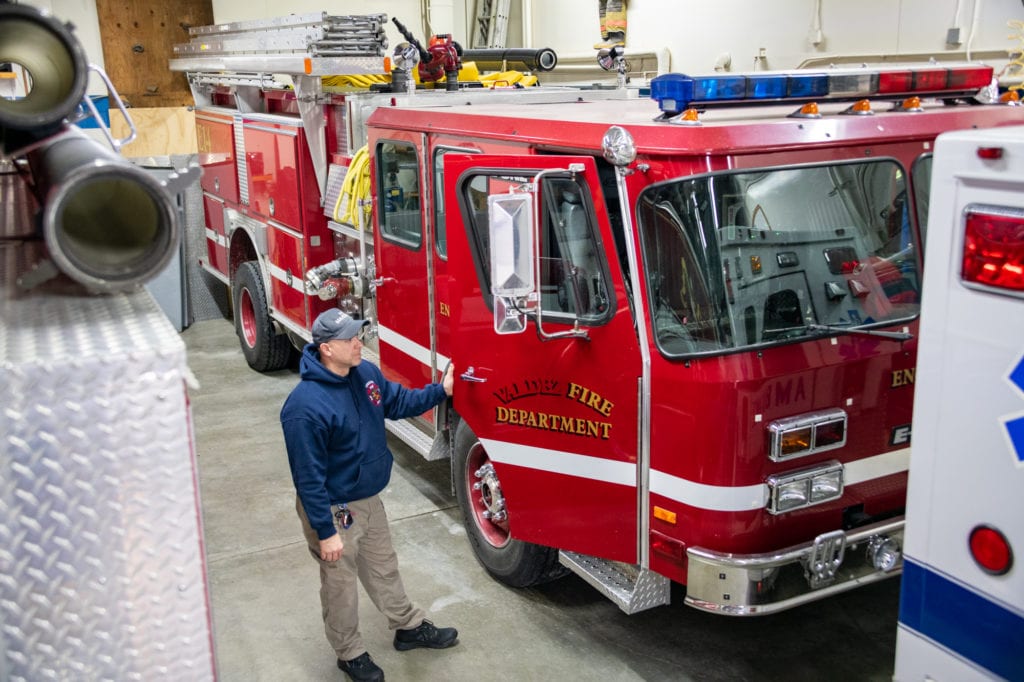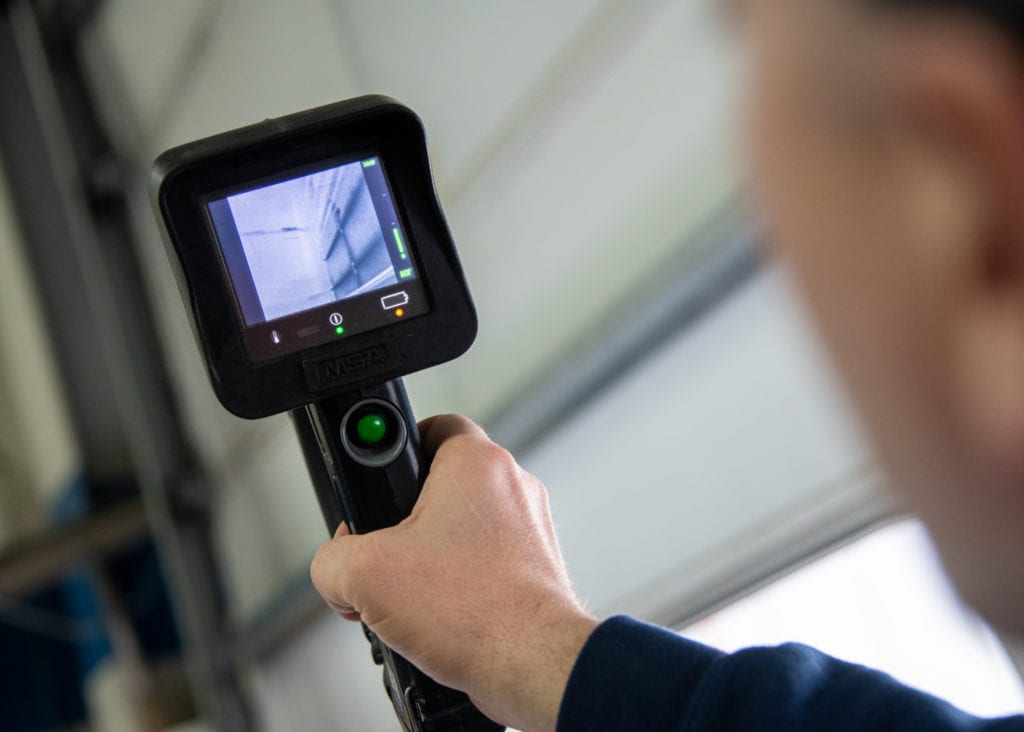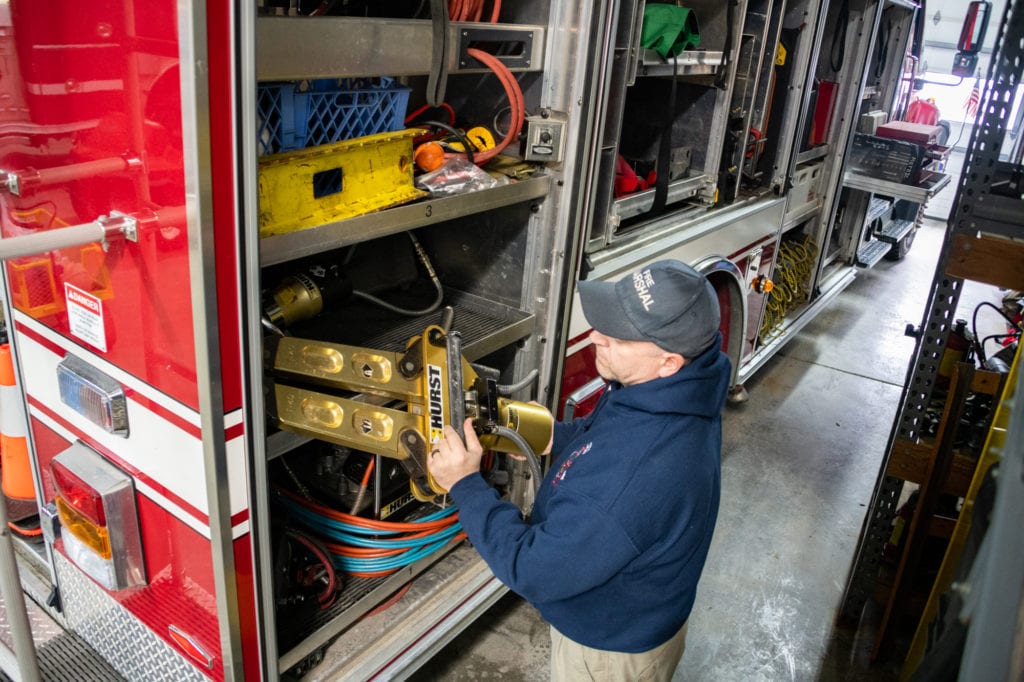
Rescuing someone from a burning building is one thing, but getting the fire department’s annual budget to add up — now, that’s difficult.
In 2019, Cordova Volunteer Fire Department found that one fire engine’s water pump was failing. A new fire engine, kitted out with ladders, hoses, axes and other necessary equipment, would have cost at least $800,000. As the city was already struggling with a substantial budget shortfall caused by state cuts, a nearly million-dollar handout for the department seemed unlikely.
Then, in March 2019, the department caught wind that Valdez planned to upgrade to a brand-new engine, getting rid of the old one. Cordova has maintained a close working relationship with Valdez, Fire Marshal Paul Trumblee said. This relationship paid off when Valdez agreed to give Cordova its used engine for free. Arranging to move the engine from Valdez to Cordova cost about $1,800 — roughly a 99.8 percent discount.
“We put our hands up in the air and said, ‘We want it!’” Trumblee said. “If you don’t ask for it, you don’t get it.”
Quick thinking and prolific grant writing have allowed the department to keep its head above water even as budgets shrink, Trumblee said. Maintaining close and communicative relationships with the state and with other communities has also allowed Cordova to receive one-off favors like their new engine. Cordova has also donated vehicles to Chenega and other area communities, he said.

While some larger communities employ professional grant writers, in Cordova the task falls to regular department employees. Collating information gathered by other department staff, Trumblee has worked on grants that have bought the department a new fire engine, a 300-gallon water tanker truck, an ambulance, a generator, two new tsunami sirens, a dozen electronic Resusci Anne QCPR resuscitation mannequins costing around $900 apiece and numerous other pieces of equipment. One grant purchased a heavy rescue truck, a kind of mobile toolbox carrying hydraulic rescue tools, axes, hazmat gear, a fan that can be used to push smoky air out of a building, and enough chainsaws to clear a forest. The department received over $200,000 in grants in 2019 alone, said Fire and Police Chief Mike Hicks.
Perhaps the trickiest part of the process comes after the money arrives, and departments are required to keep track of the grant’s implementation in minute detail. Departments that fail to accurately keep track of how funds are spent are unlikely to receive more grants in the future, Trumblee said.
Paperwork from the department’s grants fills an entire row of filing cabinets in Trumblee’s office. Unsurprisingly, the opportunity to spend hours filling out forms isn’t what inspired Trumblee to get into firefighting.
“Grants aren’t free — it’s a lot of work,” Trumblee said. “I don’t like writing grants. I’d rather be outside, doing hands-on stuff, than being here behind a desk … I’m a hands-on guy, but this part of the job pays the bills. It helps the community I live in — that’s why I do it.”
Several of the department’s vehicles were acquired soon after the Federal Emergency Management Agency began its Assistance to Firefighters Grant Program, before word about the program had spread. But, as the program has gained popularity, competition has grown to the point where getting more vehicles would be extremely challenging, Trumblee said. Without a professional grant writer, it’s difficult for Cordova to compete for national grants.

There are other limitations to the power of grants. Sometimes, problems with equipment emerge without much warning — there’s no way to look at a fire engine and predict exactly how many years it has until it breaks down. Grant applications are submitted each January and approved or rejected that September, and it can take additional years for the grant-funded assets themselves to arrive. If a vital piece of equipment like an ambulance or a fire engine abruptly goes on the fritz, the department may not be able to wait years for a grant-funded replacement. Additionally, new equipment is growing increasingly expensive, Trumblee said.
Though Cordova Volunteer Fire Department has had moments of great success chasing up resources, the city will inevitably have to raise the department’s funding, possibly by raising service fees, Trumblee said.
“Grants are great, but, at some point, they’re not going to be enough,” Trumblee said. “If we don’t spend the money to keep our vehicles and our buildings maintained, in the end, it’s going to cost the city. We’re already starting to see that a little bit … In the future, we’re going to have to prepare to pay.”





